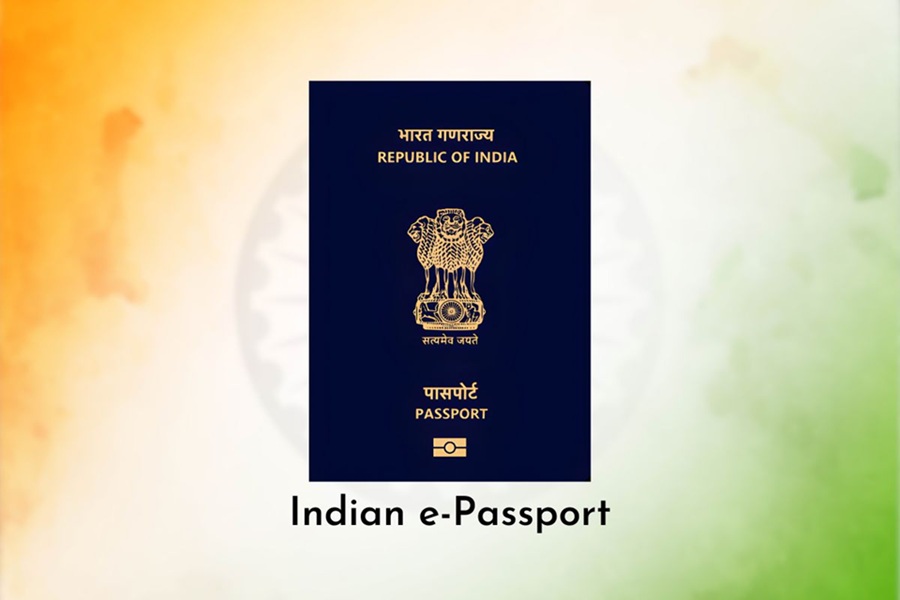India has officially launched its next-generation e-passports in May 2025, marking a significant leap in travel document security and efficiency. These chip-enabled passports are designed to enhance the safety of international travel for Indian citizens, aligning with global standards.
What Is an E-Passport?
An e-passport, or electronic passport, is a traditional passport booklet embedded with a microprocessor chip. This chip securely stores the holder's biometric and personal information, including:
Full name
Date of birth
Passport number
Photograph
Fingerprints
Iris scan
The embedded chip uses Radio Frequency Identification (RFID) technology, allowing for contactless data reading at immigration checkpoints. This facilitates faster and more secure processing, reducing wait times and enhancing the overall travel experience.
Key Features of India's E-Passports
India's e-passports incorporate several advanced features to ensure security and durability:
64 KB Embedded Chip: Stores biometric and demographic data securely.
Digital Signature: Authenticates the data, preventing unauthorized alterations.
Tamper-Proof Design: Includes watermarks, holographic images, and high-quality printing to deter counterfeiting.
Compliance with International Standards: Adheres to International Civil Aviation Organisation (ICAO) guidelines, ensuring global acceptance.
Durability: Enhanced materials make the passport resistant to wear and tear.
Benefits of E-Passports
The introduction of e-passports offers multiple advantages:
Enhanced Security: Biometric data and digital signatures make it difficult to forge or tamper with the passport.
Faster Immigration Processing: Contactless chip technology allows for quicker verification at border controls.
Global Acceptance: Compliance with ICAO standards means smoother travel across over 120 countries.
Privacy Protection: Sensitive information is stored securely, reducing the risk of identity theft.
How to Apply for an E-Passport in India
The application process for an e-passport remains similar to that of traditional passports:
Online Registration: Visit the Passport Seva Portal and register for a new passport or re-issuance.
Form Submission: Fill out the application form, providing accurate personal details.
Appointment Booking: Schedule an appointment at your nearest Passport Seva Kendra (PSK) or Post Office Passport Seva Kendra (POPSK).
Document Verification and Biometrics: Attend the appointment with required documents for verification and provide biometric data (photograph, fingerprints, iris scan).
Fee Payment: Pay the applicable fees online or at the PSK/POPSK.
Passport Issuance: Upon successful verification, the e-passport will be processed and dispatched to your address.
Note: Existing passport holders can apply for re-issuance to upgrade to an e-passport.
Rollout and Availability
As of May 2025, e-passports are being issued in the following cities:
Nagpur
Bhubaneswar
Jammu
Goa
Shimla
Raipur
Amritsar
Jaipur
Chennai
Hyderabad
Surat
Ranchi
Delhi
The government plans to expand the issuance of e-passports nationwide by mid-2025, ensuring all Indian citizens have access to this advanced travel document.
Recent Changes in Passport Regulations
Alongside the introduction of e-passports, the Ministry of External Affairs has implemented several changes to passport regulations:
Mandatory Birth Certificate: For individuals born on or after October 1, 2023, a birth certificate is now required as the sole proof of date of birth.
Removal of Residential Address: Residential addresses will no longer be printed on the passport; instead, they will be stored digitally in a barcode.
Exclusion of Parents' Names: Parents' names will no longer be included in the passport, simplifying the application process for various family structures.
Color-Coded Passports: Passports will now have color codes to indicate the holder's category: white for government officials, red for diplomats, and blue for ordinary citizens.
Expansion of Passport Seva Kendras: The number of POPSKs will increase from 442 to 600 over the next five years, enhancing accessibility for applicants across the country.
Conclusion
The launch of e-passports represents a significant advancement in India's efforts to modernize travel documentation, enhance security, and streamline international travel for its citizens. By integrating cutting-edge technology and aligning with global standards, India is poised to offer its travelers a more secure and efficient passport experience.
For more information and to apply for an e-passport, visit the Passport Seva Portal.
